Social Work rallies area experts to impact individual and community health
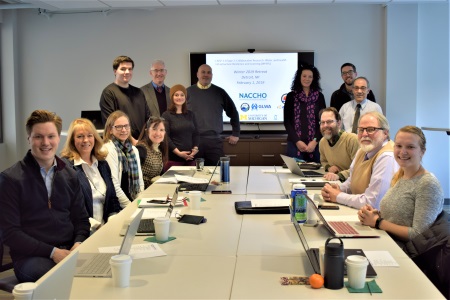
On February 1, members from the National Science Foundation funded Water, Health, Resiliency, Infrastructure and Learning (WHIRL) project convened at an all day retreat at the School of Social Work to organize and plan the first phase of the study that seeks to understand the interdependencies between water and health systems. The team is made of researchers from multiple disciplines including engineering, public health, communication, political science and social work representing Wayne State University, University of Michigan, and the University of North Carolina-Chapel Hill. This year, Social Work faculty Rick Smith and Joanne Sobeck and SWAN doctoral student Erin Stanley are responsible for collecting data on community and health system characteristics and safe drinking water information in five case communities. Next year they will implement a national infrastructure scan surveying water and health systems and how they experience risks (e.g, water main breaks, disease outbreaks) and different patterns of impacts. The objective is to develop models and frameworks that explain how drinking water and public health systems respond to and learn from water-induced disruptions that promote resilience.
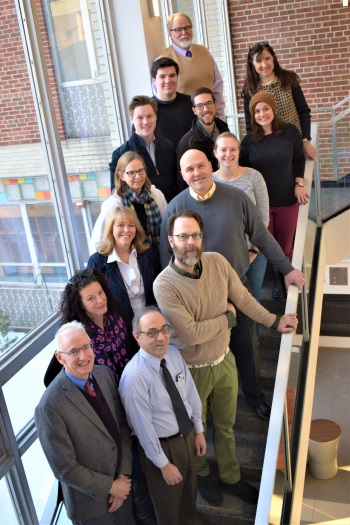
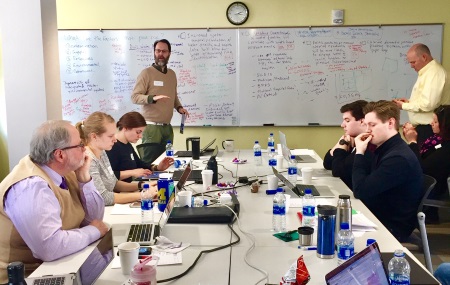
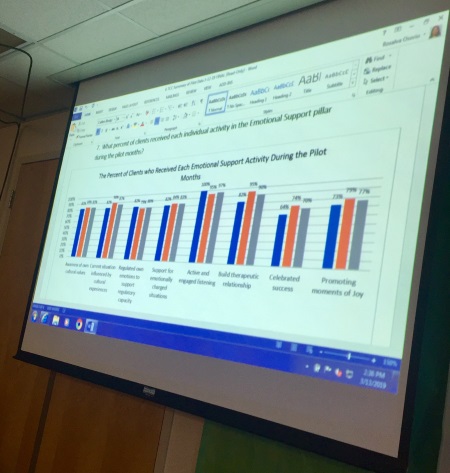
The Children's Center (TCC) and Wayne State University School of Social Work and the Merrill Palmer Skillman Institute have joined forces to document infant mental health home visiting (IMH-HV) practices and develop a plan to test infant/child/caregiver outcomes. This multi-year project has involved clinicians, supervisors, and administrators from TCC and leaders from the WSU Infant Mental Health Program (below from left: Carolyn Dayton and Ann Stacks) and WSU Social Work Research Center (Liz Agius & Joanne Sobeck). Most recently, team members met with the clinicians to review results from an infant mental health checklist that was co-developed and used to assess the primary activities associated with infant mental health as delivered by TCC clinicians.
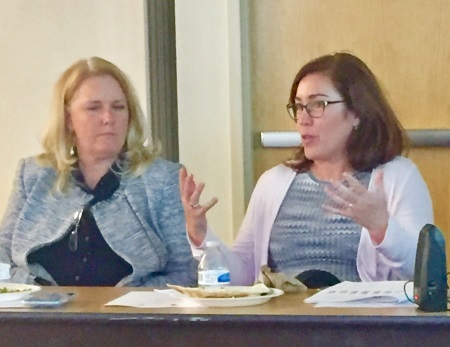
Because of this collaborative effort, TCC plans to institutionalize the fidelity checklist to support best practice in infant mental health. The next step will focus on establishing outcomes with valid measures that will answer TCC's question of "how do we know that we are implementing IMH-HV with fidelity and know what impact we are having on our clients?"